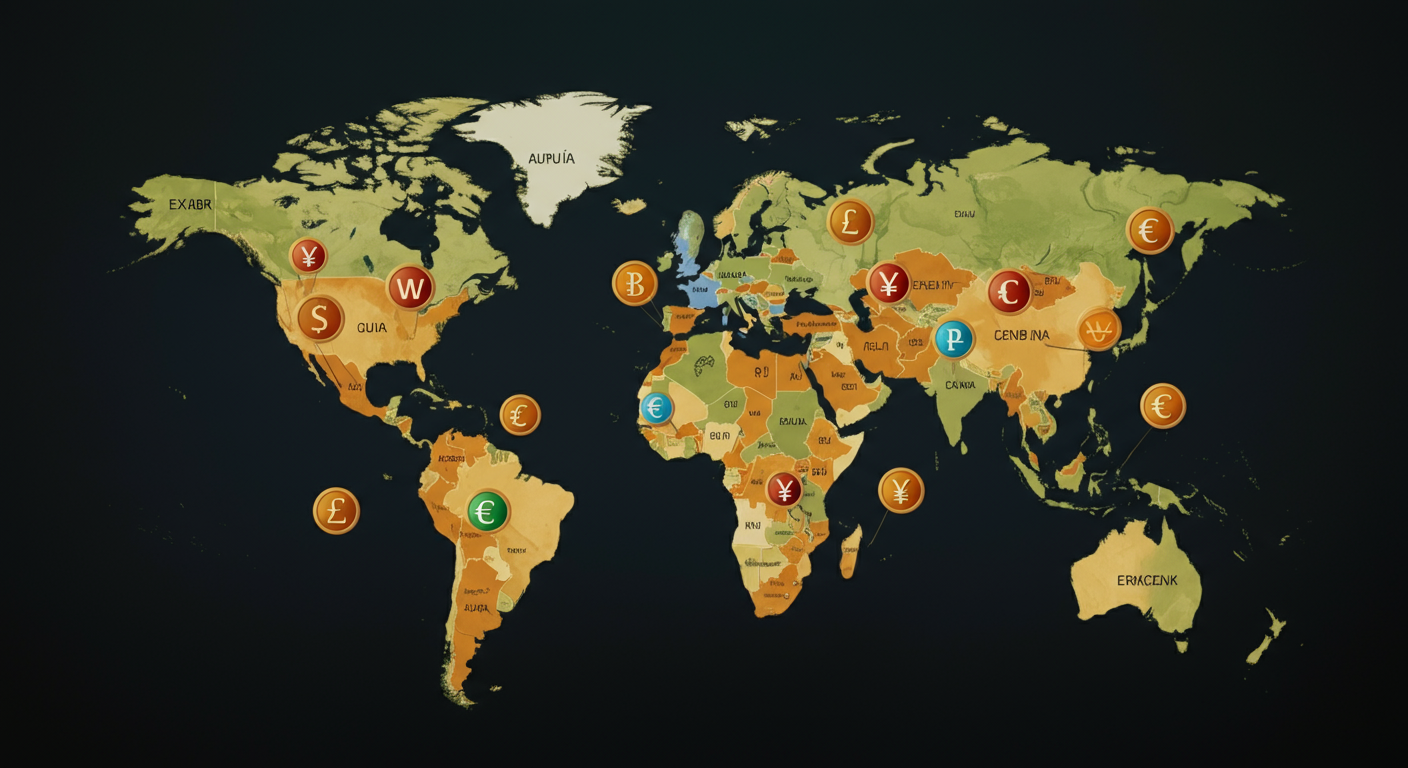
When Coca-Cola launched in China, they discovered their brand name translated to “bite the wax tadpole.” This expensive mistake highlights why localization—adapting your marketing content for specific markets—has become essential for businesses expanding globally.
Localization goes far beyond simple translation. It’s about understanding cultural nuances, local preferences, and market-specific behaviors that can make or break your international marketing efforts. Companies that invest in proper localization see significantly higher engagement rates, improved conversion rates, and stronger brand loyalty in new markets.
Understanding Marketing Localization

Marketing localization involves adapting your content, messaging, and campaigns to resonate with specific target markets. This process considers cultural differences, local regulations, consumer behavior patterns, and market-specific preferences that influence purchasing decisions.
Unlike translation, which focuses on converting text from one language to another, localization adapts your entire marketing approach to feel native to each market. This includes adjusting imagery, colors, pricing strategies, and even product offerings to match local expectations.
Successful localization requires deep market research and cultural understanding. It’s about making your brand feel local while maintaining consistent core values across all markets.
Expanded Market Reach and Accessibility
Localization dramatically increases your potential customer base by making your products and services accessible to non-English speaking markets. Consider that over 75% of consumers prefer to buy products in their native language, and 60% rarely or never buy from English-only websites.
When you localize your marketing materials, you remove language barriers that prevent potential customers from understanding your value proposition. This accessibility improvement directly translates to increased traffic, higher engagement rates, and more conversion opportunities.
Markets like China, Japan, and Germany represent massive opportunities for businesses willing to invest in proper localization. These markets often have strong preferences for local-language content and may be skeptical of brands that don’t demonstrate cultural awareness.
Enhanced Customer Experience and Trust
Localized marketing creates a more personal and relevant experience for your international customers. When people see content in their native language that references local customs, holidays, or cultural touchpoints, they feel understood and valued by your brand.
This personal connection builds trust more effectively than generic, one-size-fits-all messaging. Customers are more likely to engage with brands that demonstrate understanding of their specific needs and cultural context.
Trust becomes particularly important in markets where consumers are cautious about foreign brands. Localized marketing helps establish credibility and shows your commitment to serving the local market properly.
Improved Conversion Rates and Sales Performance
Localized marketing campaigns consistently outperform generic international campaigns in terms of conversion rates. When your messaging resonates with local values and addresses market-specific pain points, customers are more likely to take action.
Different markets may respond to different psychological triggers, promotional strategies, or sales approaches. What works in the United States might not be effective in Japan or Germany. Localization allows you to optimize your approach for each market’s unique characteristics.
Price localization also plays a crucial role in conversion optimization. Displaying prices in local currencies, offering region-appropriate payment methods, and adjusting pricing strategies to match local purchasing power can significantly impact sales performance.
Competitive Advantage in Local Markets
Many businesses attempt international expansion without proper localization, creating opportunities for companies that invest in market-specific strategies. When you deliver localized experiences while competitors offer generic alternatives, you gain a significant competitive edge.
Local competitors often have natural advantages in understanding their market, but international brands with proper localization can combine global resources with local relevance. This combination can be particularly powerful in markets where consumers value international brands but expect local-level service.
Localization also helps you identify and capitalize on market-specific opportunities that competitors might miss. Different regions may have unique needs, preferences, or seasonal patterns that create additional revenue streams.
Cultural Sensitivity and Brand Protection
Localization helps prevent cultural missteps that can damage your brand reputation in new markets. What seems harmless in one culture might be offensive or inappropriate in another. Proper localization includes cultural review processes that identify potential issues before they become problems.
Color choices, imagery, symbols, and even number preferences can carry different meanings across cultures. For example, white symbolizes purity in Western cultures but represents mourning in some Asian cultures. These details matter when building brand perception.
Cultural sensitivity also extends to marketing timing and messaging. Religious holidays, local events, and cultural celebrations provide opportunities for positive engagement when approached thoughtfully, but can create negative associations if handled insensitively.
Better SEO Performance in Target Markets
Localized content performs better in local search results because search engines prioritize content that matches user location and language preferences. When you create content in local languages using region-specific keywords, you improve your visibility in local search results.
Local SEO factors like geo-targeted keywords, local backlinks, and region-specific content signals help search engines understand your relevance to specific markets. This improved visibility leads to increased organic traffic from your target regions.
Different markets may use different search engines or have unique search behavior patterns. Localization allows you to optimize for the platforms and search patterns that matter most in each market, rather than applying a one-size-fits-all approach.
Stronger Brand Loyalty and Customer Retention
Customers who feel understood and valued by your brand are more likely to become repeat buyers and brand advocates. Localized marketing creates emotional connections that transcend simple product satisfaction.
When customers see that you’ve invested time and resources to understand their market, they interpret this as respect for their culture and values. This emotional connection creates stronger brand loyalty than purely transactional relationships.
Localized customer service, support materials, and ongoing communication help maintain these relationships over time. Customers are more likely to remain loyal to brands that continue to demonstrate cultural awareness and local market commitment.
Cost-Effective Marketing Investment

While localization requires upfront investment, it typically delivers better return on investment than generic international campaigns. Localized campaigns achieve higher engagement rates, better conversion rates, and stronger customer lifetime value.
The cost of localization has decreased significantly with improved technology and expanded service provider options. Translation tools, localization platforms, and global talent marketplaces make it more accessible for businesses of all sizes.
When you consider the cost of failed international expansion attempts or poor-performing generic campaigns, localization becomes a cost-effective risk mitigation strategy. It’s better to invest in doing it right initially than to recover from cultural missteps or poor market performance.
Regulatory Compliance and Legal Protection
Different markets have varying regulations regarding advertising claims, data privacy, consumer protection, and marketing practices. Localization helps ensure your marketing materials comply with local legal requirements.
Failure to comply with local regulations can result in fines, legal action, or market access restrictions. Proper localization includes legal review processes that identify potential compliance issues before launch.
This legal protection becomes particularly important in highly regulated industries like healthcare, finance, or food and beverage. Localization helps you navigate complex regulatory environments while maintaining effective marketing messages.
Long-Term Sustainable Growth
Localization creates sustainable competitive advantages that are difficult for competitors to replicate quickly. Once you’ve established strong local market presence and cultural understanding, you’ve built barriers to entry that protect your market position.
The relationships, brand recognition, and market knowledge gained through localization compound over time. Early investment in localization pays dividends through sustained market performance and expansion opportunities.
Markets that initially require significant localization investment often become your most profitable and loyal customer bases over time. The effort invested in understanding and serving these markets creates lasting business value.
Measuring Localization Success
Effective localization requires ongoing measurement and optimization. Track metrics like engagement rates, conversion rates, customer acquisition costs, and customer lifetime value across different markets to understand your localization ROI.
Pay attention to from local customers, partners, and team members. Their insights can help you identify optimization opportunities and avoid potential cultural missteps.
Use A/B testing to compare localized versus generic content performance. This data helps you understand which localization elements provide the greatest impact and inform future investment decisions.
Building Your Localization Strategy
Successful localization requires strategic planning, appropriate resources, and ongoing commitment. Start by identifying your highest-priority markets based on business opportunity, cultural similarity, and resource requirements.
Consider partnering with local experts, agencies, or team members who understand your target markets intimately. Their cultural insights and market knowledge can significantly improve your localization effectiveness.
Develop processes for maintaining consistency across markets while allowing for local adaptation. This balance ensures brand coherence while maximizing local relevance and effectiveness.
Transforming Global Marketing Through Localization
Marketing localization offers compelling benefits for businesses serious about international expansion. From improved customer experience and higher conversion rates to stronger brand loyalty and competitive advantages, localization transforms how global audiences perceive and interact with your brand.
The investment in localization pays dividends through sustainable growth, reduced marketing costs, and stronger market positions. As global commerce continues expanding, businesses that embrace localization will have significant advantages over those that rely on generic international approaches.
Start by identifying your most promising international markets and developing localization strategies that balance global consistency with local relevance. Your investment in understanding and serving diverse markets will create lasting business value and open new growth opportunities.
Leave a Reply